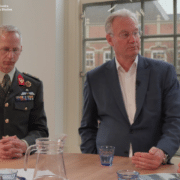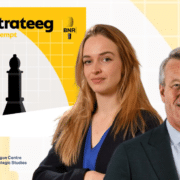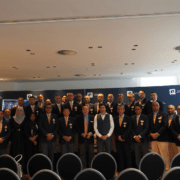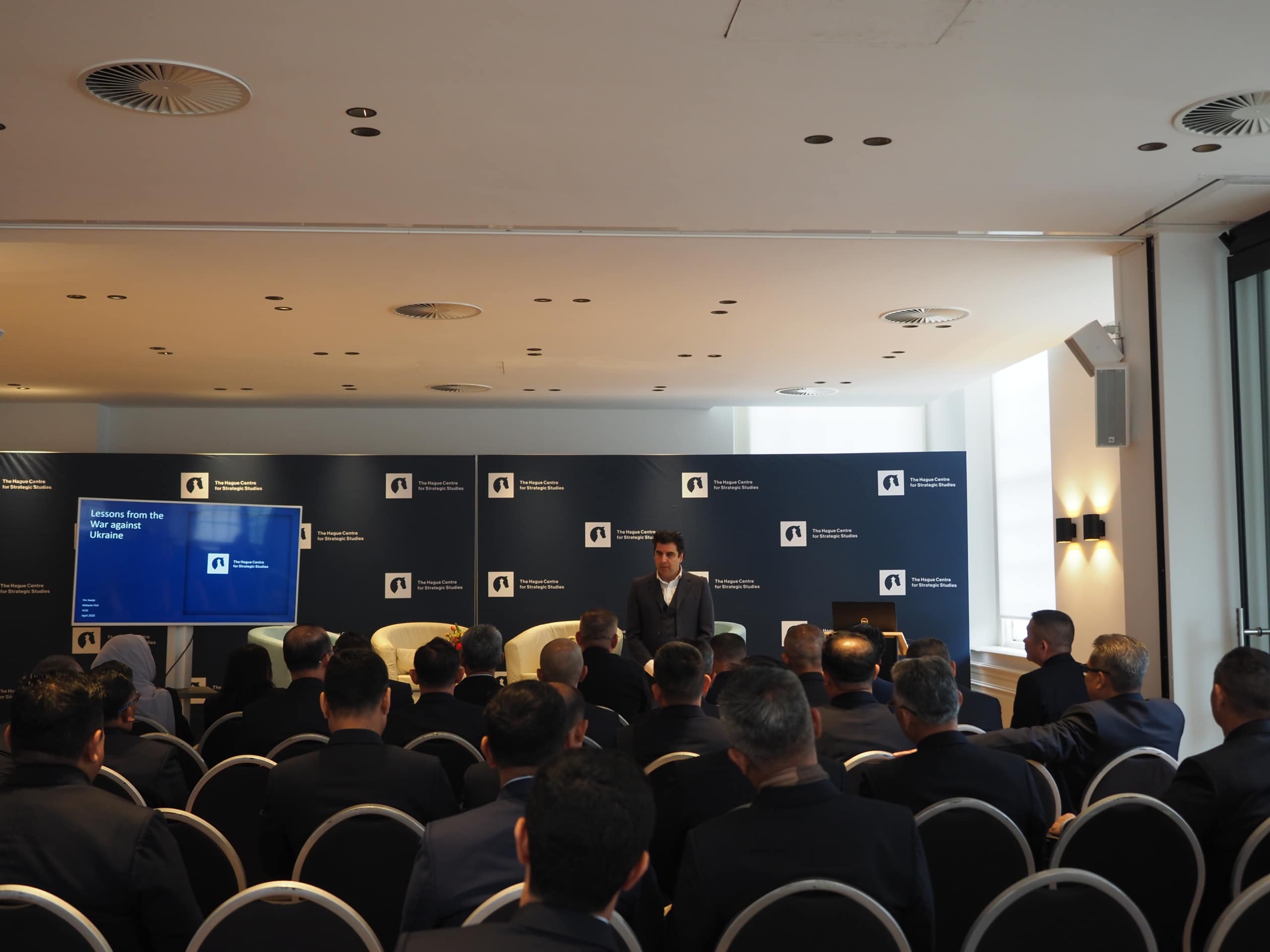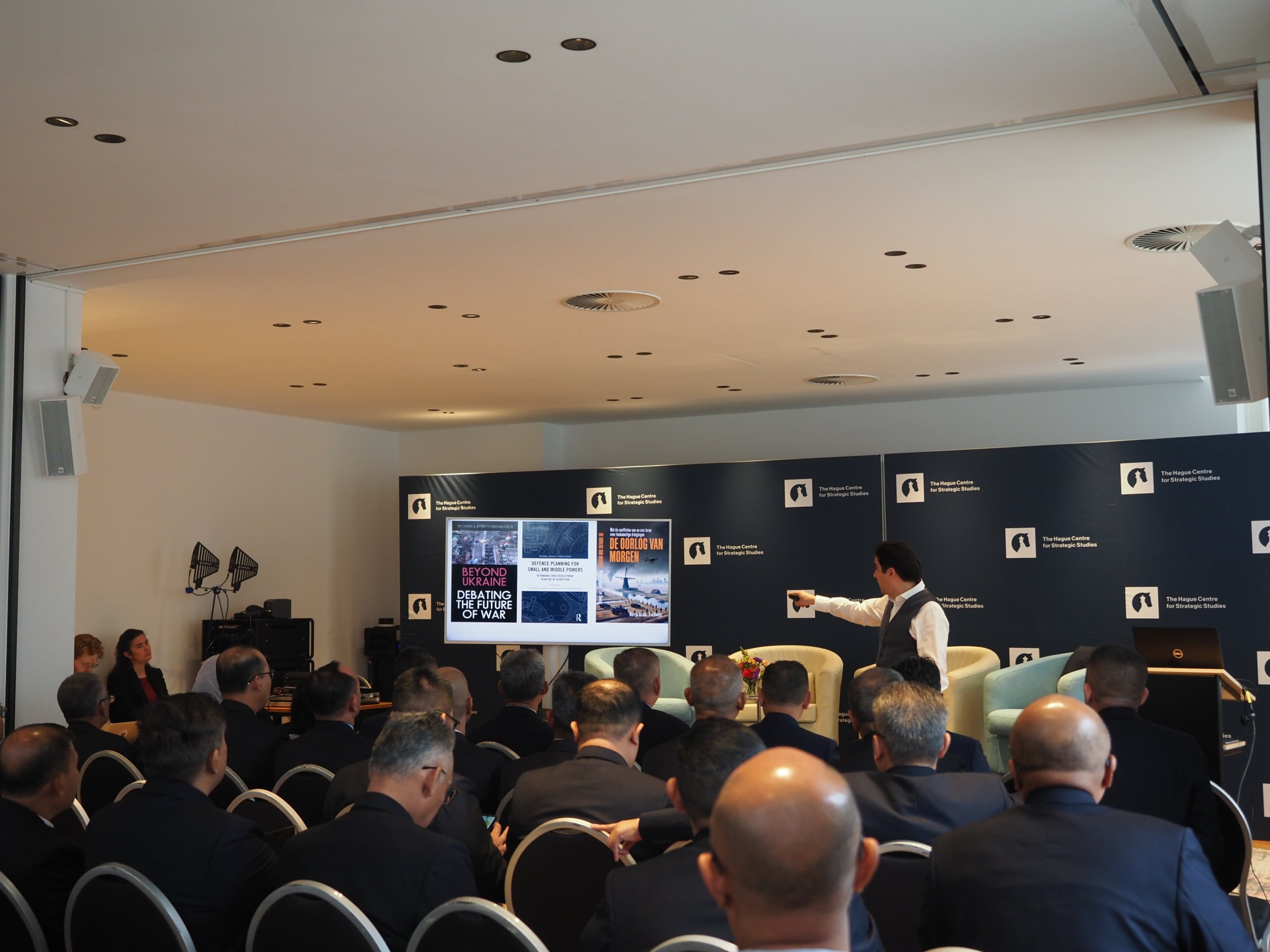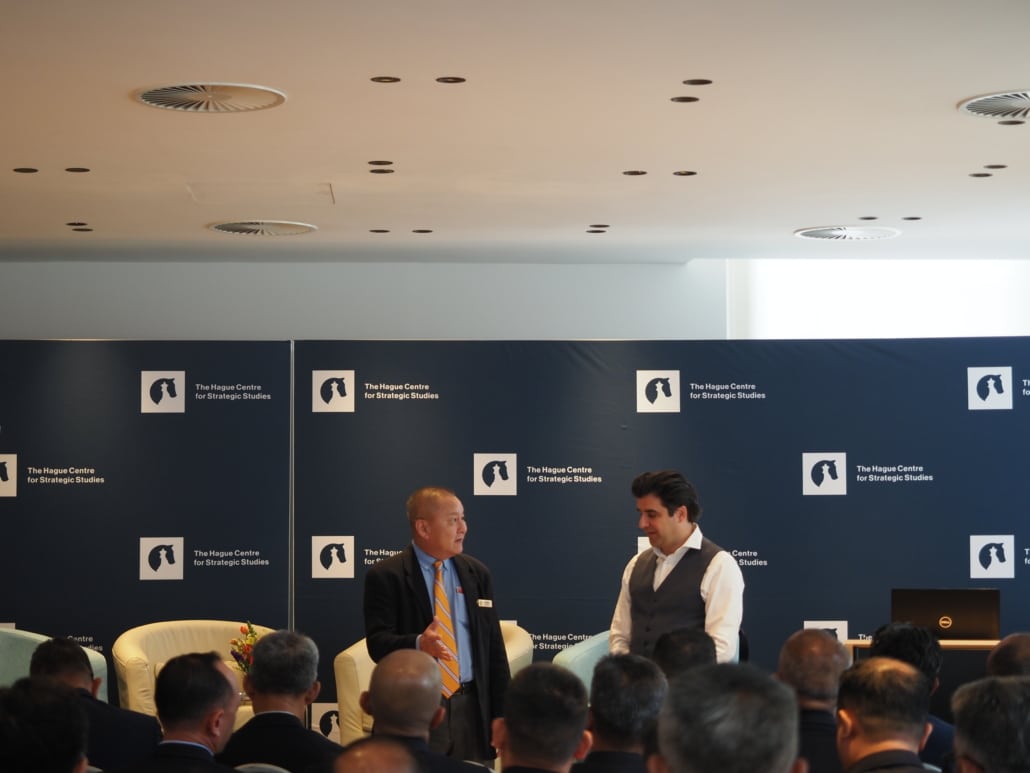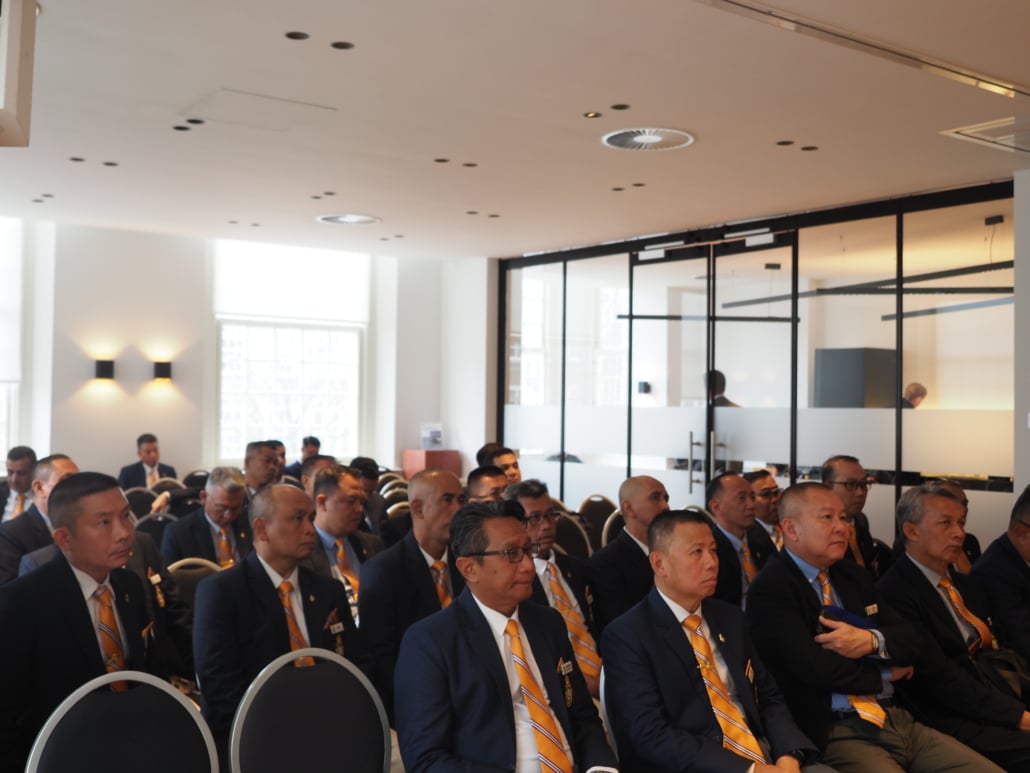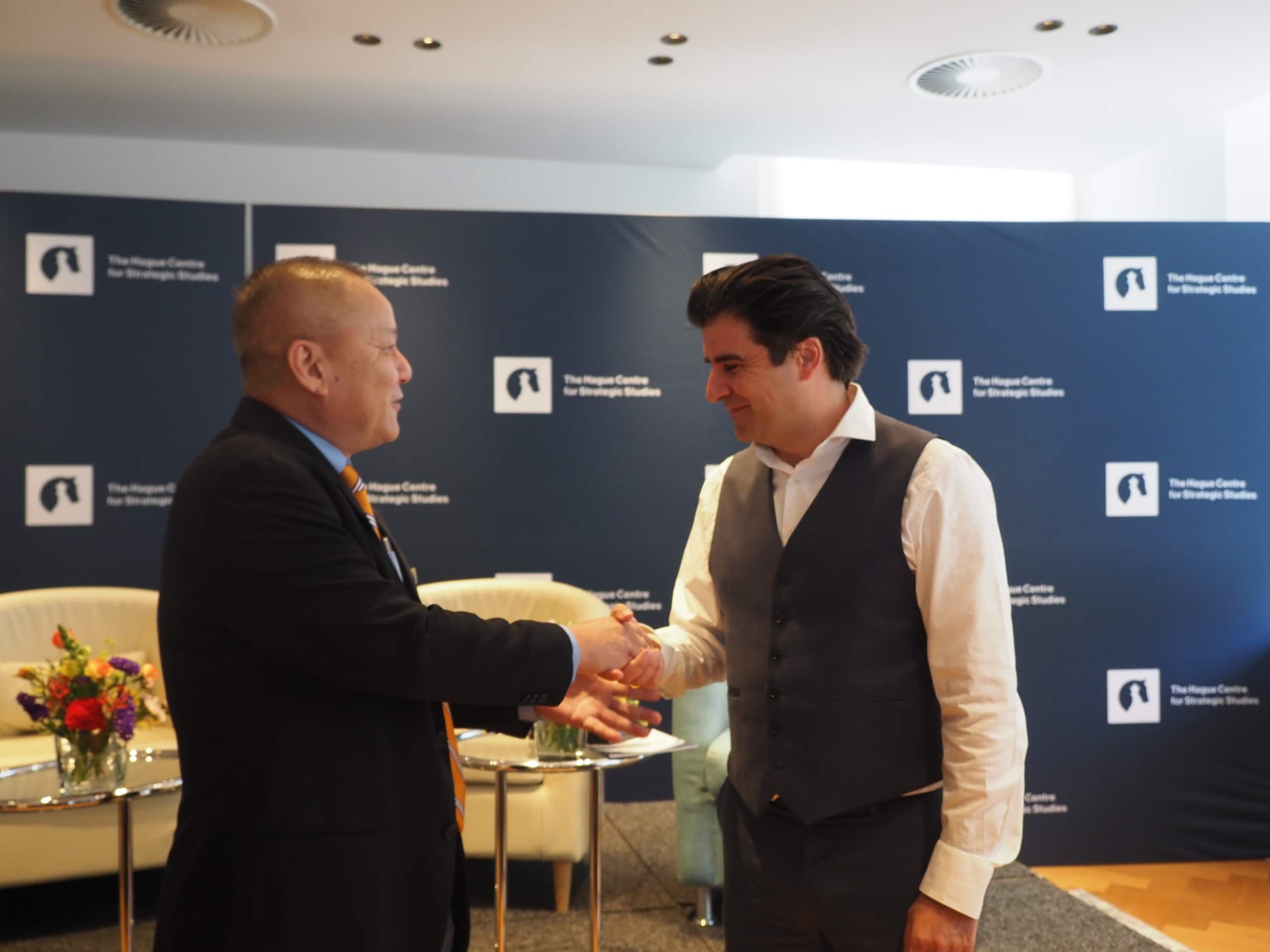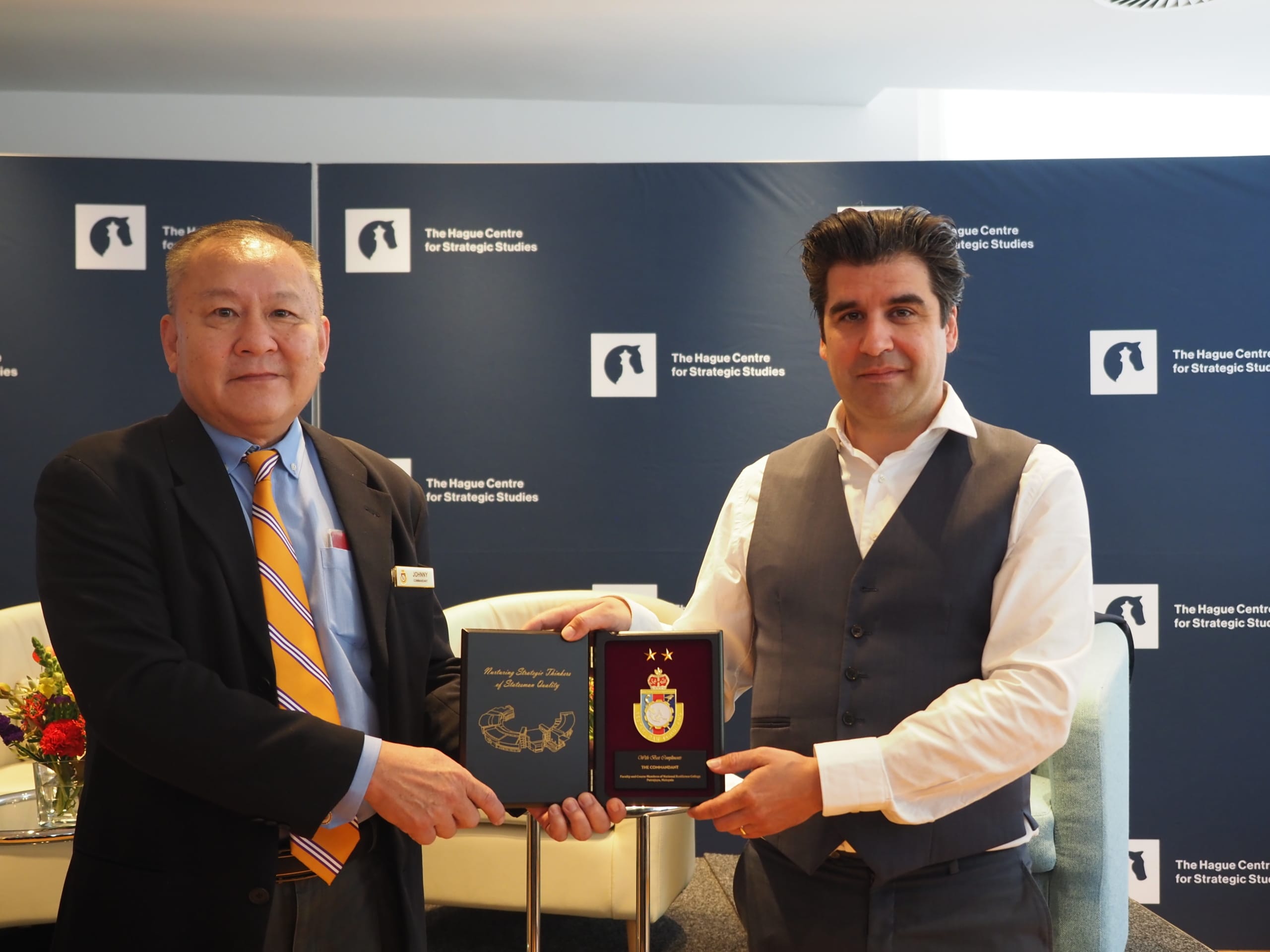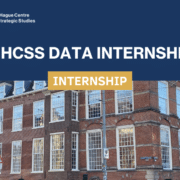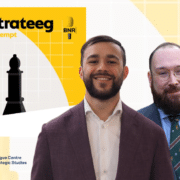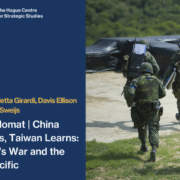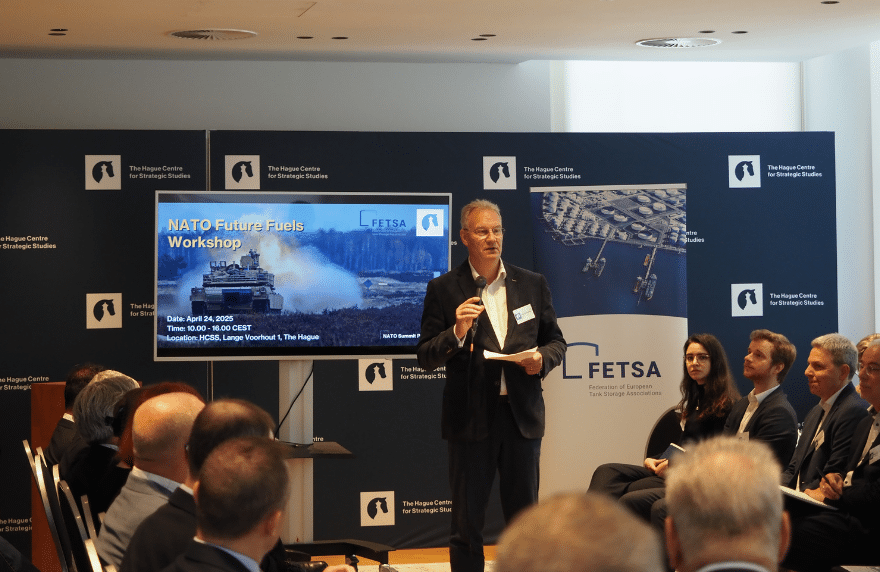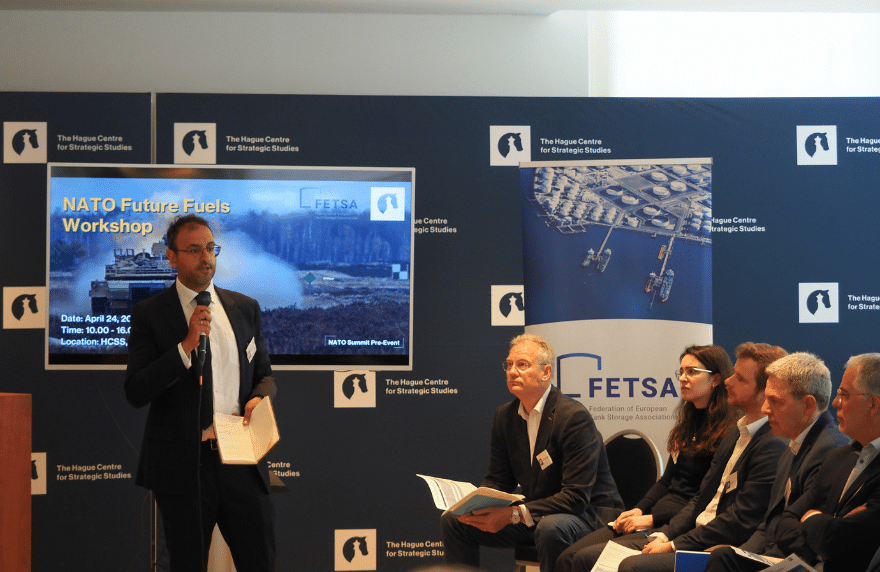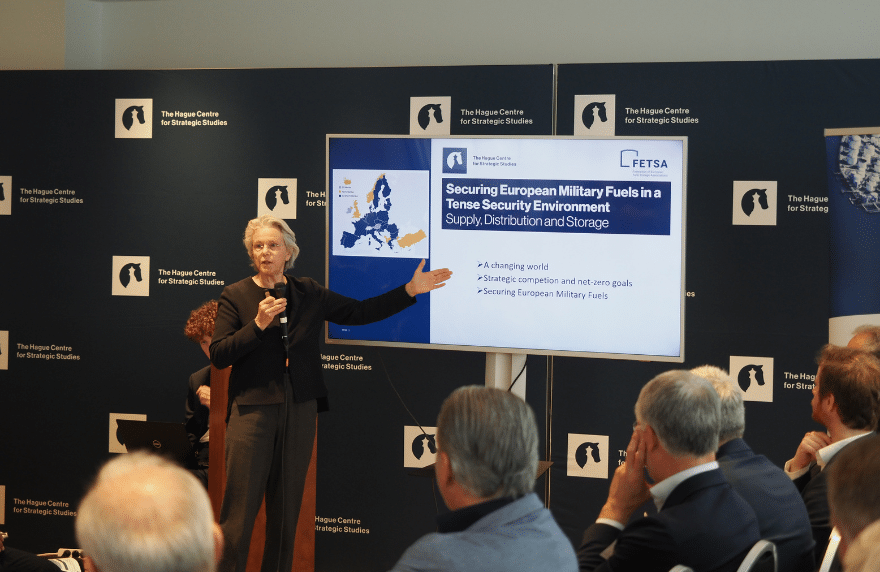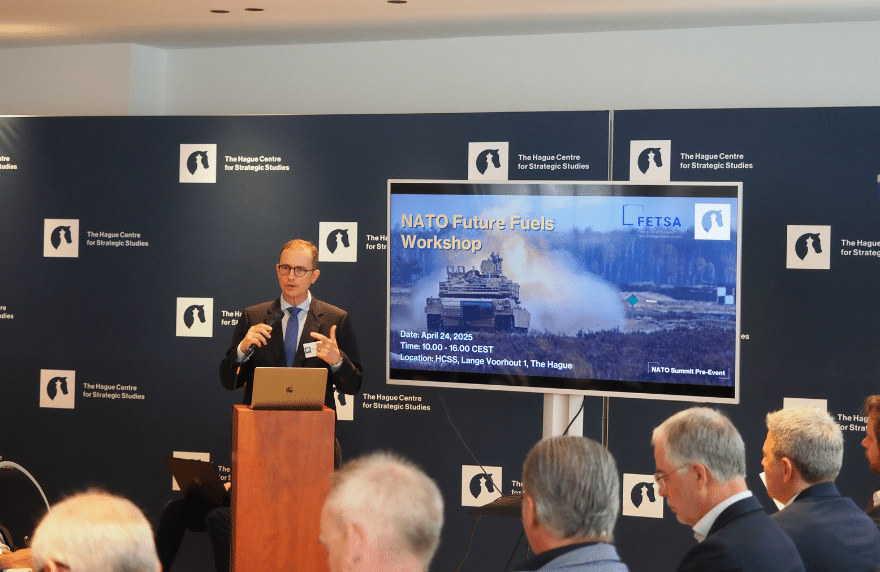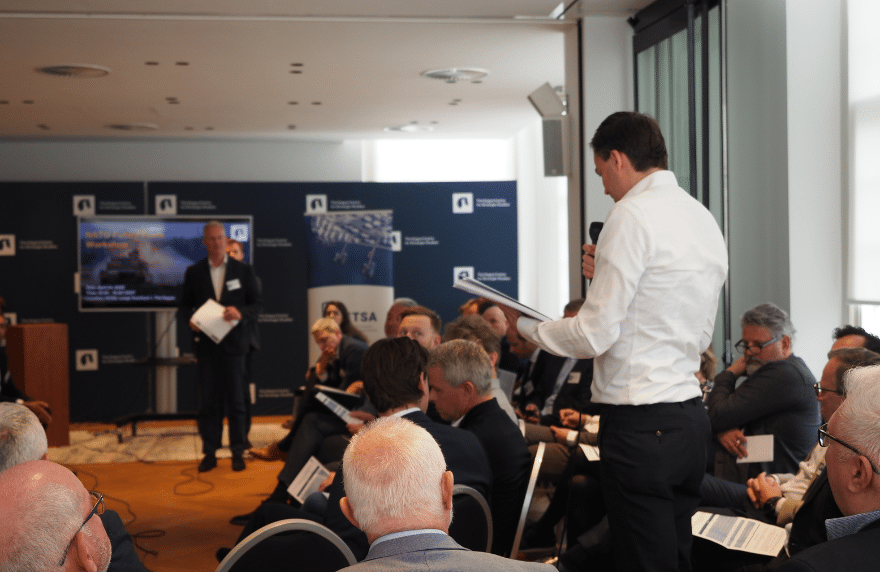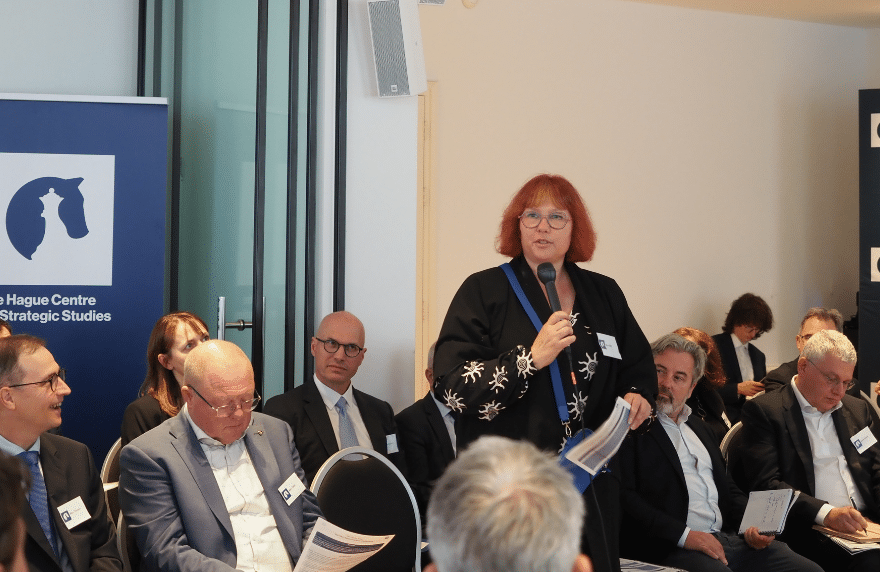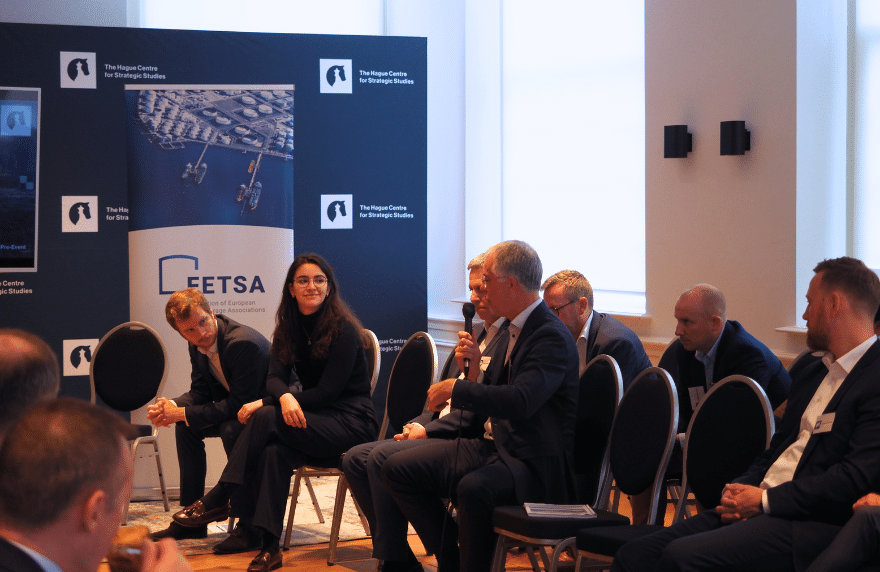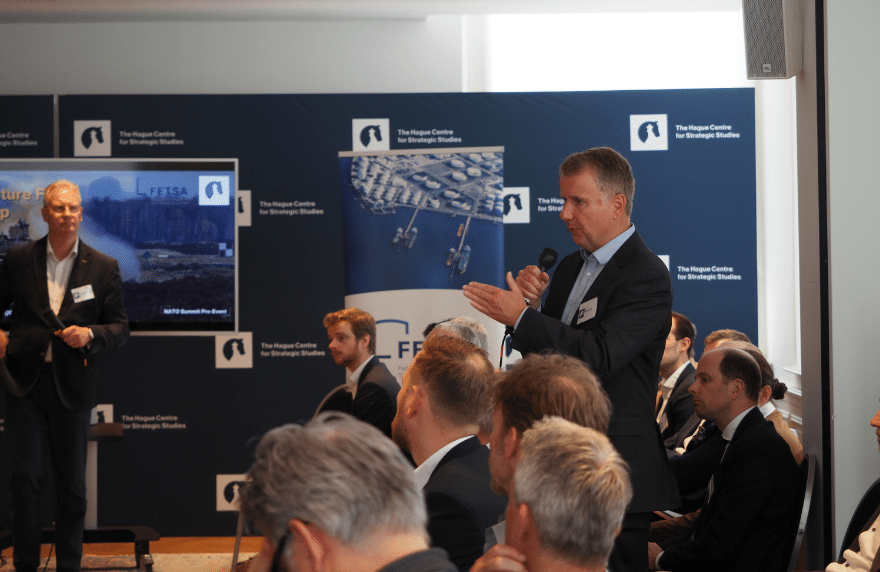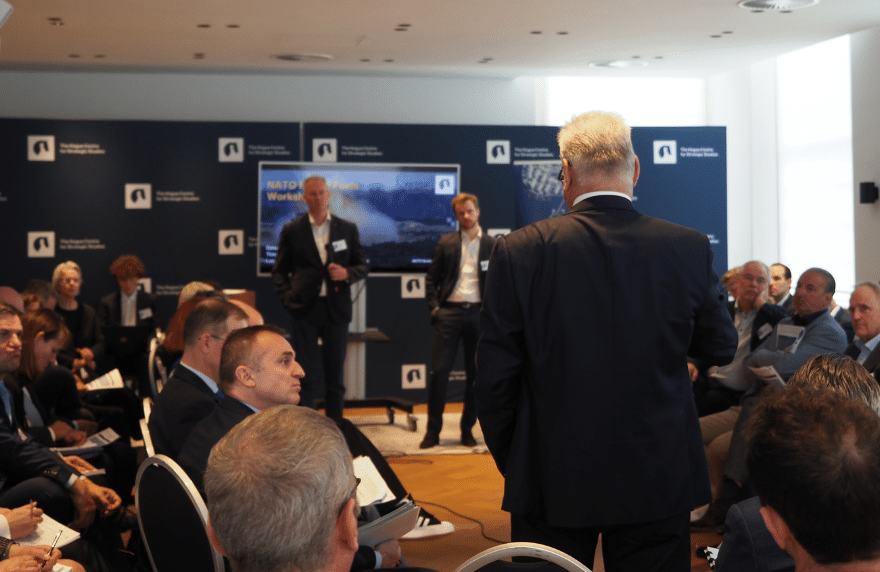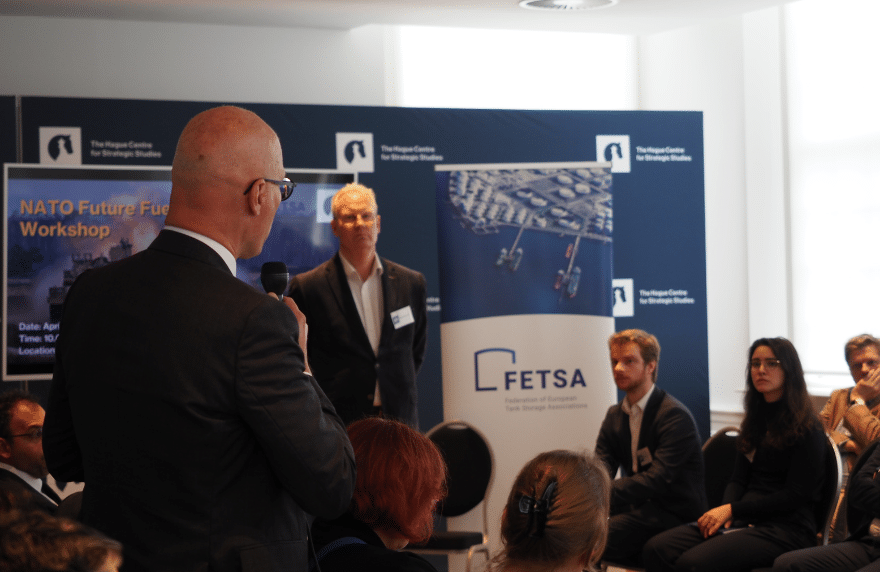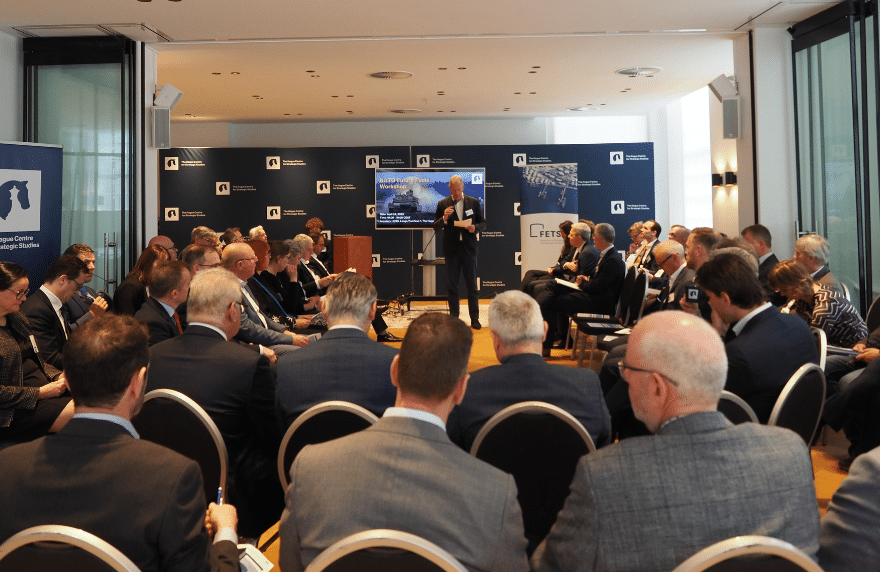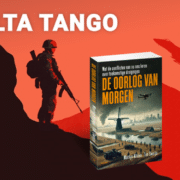How can Taiwan ensure its defense strategy evolves in time to counter China’s growing military pressure? Over the course of a year-long study, we analyzed the campaign in Ukraine, comparing it with Taiwan’s military strategies and defense posture. Here’s what we found.
The Diplomat | March 18, 2025, by Benedetta Girardi, Davis Ellison, and Tim Sweijs | Photo credit: Office of the President, ROC (Taiwan)
China’s coercive campaign against Taiwan has escalated in recent years. Beijing’s approach has evolved from putting political and economic pressure on the island’s leadership and now includes expansive military exercises considered by many to be rehearsals for forced unification. It has sparked debate amongst political and military experts about what form such forced unification could take: Will the People’s Liberation Army (PLA) services seek to strangle the island’s economy through a semi-permanent blockade? Will they boil the frog over time through an on-and-off blockade? Or will they land a knock-out punch in a Sea Land Invasion?
If one thing is certain, it’s this: Beijing’s calculation will be shaped by whether Taiwan is ready to defend itself. For Taiwan to do so successfully, it will have to learn lessons from the war against Ukraine, a country that failed to deter an attack from a much more powerful neighbor, yet has been able to successfully defend itself since.
From the Steppes of Ukraine to the Shores of Formosa
Though distinct in terms of geography, size, and military doctrine, Taiwan and Ukraine share many parallels. Both are democracies with strong national identities threatened by authoritarian neighbors that claim historical sovereignty over their territories. They are strategic hotspots in their respective regions. Ukraine serves as a buffer between Russia and NATO, while Taiwan is a critical component of the Indo-Pacific security and trade architecture. Last but not least, Kyiv and Taipei both face overwhelming military asymmetry against their adversaries.
While it is not possible to claim full transferability of lessons learned from the Ukrainian theater to the Taiwanese one, dismissing the comparison between the two would also be a mistake. The PLA’s strategists are in fact closely watching the developments in Ukraine and adapting accordingly. Taipei is well advised to do the same.
Over the course of a year-long study, we analyzed the campaign in Ukraine, comparing it with Taiwan’s military strategies and defense posture. We combined scenario-based exercises related to Taiwan with on-the-ground fieldwork on the island. During our time in Taipei, we met with officials from the Ministry of Foreign Affairs and Ministry of National Defense (MND), engaging in discussions with policy planners and military strategists about Taiwan’s position vis-à-vis China and its preparedness for a potential military confrontation. While awareness in Taipei is at an all-time high, our study found that Taiwan still has much it can learn from the Ukrainian battlefield.
Still, if asked about the one key lesson Taiwan should take away from the war in Ukraine, it is the necessity for the island to recognize that its ability to withstand an invasion depends on fortifying its denial-based strategy. The conflict has shown that advanced military hardware alone does not determine outcomes; rather, success hinges on a combination of robust strategy, resilient command structures, and effective logistics. Taiwan’s ability to adapt its military strategy will be a decisive factor in shaping the outcome of any potential conflict over the island.
With the stakes so high, the question remains: how can Taiwan ensure its defense strategy evolves in time to counter China’s growing military pressure?
From Conventional Deterrence to Asymmetric Denial: Practice What You Preach
Taipei needs to double down on a strategy centered around denial. For many decades, Taiwan relied on conventional deterrence, heavily investing in fighter jets and warships, to dissuade Beijing from military adventurism and raise the perceived costs of military actions. Ukraine’s experience has underscored the need for agility and asymmetric warfare capabilities when facing a superior adversary.
This has not been lost on military decision makers. Since February 2022, Taiwan has ostensibly recalibrated its posture to one aimed at denial, prioritizing the combination of gradual air denial with asymmetric warfare means such as cyber, drone technology, and resilient battlefield communication – key factors in Ukraine’s ability to counter Russian advances.
The idea of investing in asymmetric warfare capability to increase the cost of aggression for a possible invasion from China is not new to the Taiwanese military. In 2018, Admiral Hsi-min Lee proposed in the Overall Defense Concept (ODC) to shift the definition of “winning the war” from “totally destroying enemy forces” to “fail[ing] the enemy’s mission to occupy Taiwan” by complementing traditional platforms with asymmetric assets.
Yet progress in this field has been slow. Chronic underinvestment in the military, low troop quality, and the MND’s ambivalence toward asymmetric warfare have delayed the realization of the concept outlined in the ODC, creating shortcomings in Taiwan’s self-defense.
Resistance to fully embrace a denial posture still persists within the Taiwanese MND. Yet, a deterrence-by-punishment strategy for Taiwan is likely infeasible due to escalation risks, especially against a nuclear power. In contrast, denial is more viable as it relies less on conditions that weaken punishment strategies. Taiwan can effectively communicate its denial capabilities through exercises and demonstrations, reducing the risk of misinterpretation by China. Additionally, if deterrence fails, a denial strategy can support Taiwan’s actual defense by countering attacks across multiple domains.
Arming for Denial: Taiwan’s Key Investments
It is time for Taiwan to further prioritize the adoption of a denial posture. Key investments span across the sea, land, and air domains. They include acquiring a mix of aerial capabilities such as drones and integrated air and missile defense (IAMD), enhancing naval strike capabilities through the procurement and indigenous development of anti-ship missiles and land-attack cruise missiles, building up stockpiles of sea-denial assets like mines and unmanned surface vehicles, and accommodating engineered defensive fortifications and infrastructure on the island.
Investments in a mix of conventional and asymmetric aerial capabilities, such as IAMD and drones, enhanced Ukraine’s success rate. At sea, Ukrainian use of unmanned underwater and surface vessels and aerial drones proved to be a game-changer to deny Russian control of the seas. On land, the increased battlefield transparency provided by drones has been vital in upkeeping Ukrainian operations.
As there is no scenario in which Taiwan can go toe-to-toe with China in terms of conventional advanced military capabilities, Taipei needs to seek other ways by leveraging its asymmetric advantages. Learning from the Ukrainian battlefield, Taiwan should thus build up its arsenal while keeping in mind that a force posture based on a denial strategy should be increasingly asymmetric in nature.
Know Your Enemy, Know Yourself
Awareness, understanding, and the ability to communicate and trust one another in the battlefield are key components of a successful denial strategy. Taiwan must ensure a coherent command structure across its military services, preventing inter-service rivalries and inefficiencies through pre-war exercises and clear operational coordination. Resilient communication systems, including terrestrial and space-based backups, are crucial to maintaining connectivity during conflict, alongside a robust cyber defense and electronic warfare strategy. Intelligence operations must be streamlined by breaking down bureaucratic processes and fostering collaboration among services and decision-makers to prevent miscalculations. Finally, Taiwan should invest in cyber capabilities, counter-electronic warfare assets, and a broad network of sensors, including drones of various sizes, to improve intelligence gathering and targeting capabilities while minimizing reliance on foreign sources.
The Russia-Ukraine conflict has shown the importance of keeping communication nodes active on the battlefield, as well as the vital role of anticipating strategic surprise. Command failures, faulty communications, and poor intelligence plagued Russia’s initial campaigns. At the same time, Ukraine benefited from stable coverage and secure and accessible military/government functions, aided by foreign-supported cloud and intelligence services.
Quantity Is a Quality of Its Own
Taiwan should recognize that while quality can compensate for numerical inferiority, it cannot do so indefinitely. In the initial stages of a PLA attack on the island, a well-trained force with robust intelligence, surveillance and reconnaissance, as well as high-tech weaponry can outperform a larger, less prepared adversary. However, over time, quantity matters.
Ukraine has been able to avoid being out-produced and out-mobilized thanks to the uninterrupted supply of foreign assistance that replenished its depots where domestic production could not keep up. Sustaining prolonged resistance requires a deep reserve of manpower, munitions, and logistical resilience, even more so in an insular context such as Taiwan’s. Taipei must establish stockpiles and prioritize voluminous and disposable assets that can be replaced at lower costs and be manufactured on the island if it wants to be able to sustain wartime efforts in the long run.
With Enemies Like These, You Need Powerful Friends
Yet, the most vital lesson from Ukraine is not military but geopolitical: international support and alignments are indispensable. Ukraine would have not resisted as long as it did without the global endorsement it received. From economic sanctions on Russia to military aid, from intelligence to medical equipment, Ukraine has largely benefited from its international network. While a part of this support was motivated by humanitarian reasons, another was definitely driven by the strategic considerations of other countries.
Taiwan’s denial strategy is a calculated approach to deterrence, leveraging asymmetric capabilities to counterbalance China’s military superiority. However, it hinges on external backing, especially from the United States. Military aid, arms transfers, intelligence cooperation, trade – all are vital factors if a smaller, insular actor is to deter a far superior adversary in the long run. While the island’s geopolitical position might grant some of the same assistance Ukraine received, the threat of an escalation with China is a powerful deterrent for many countries.
Taiwan’s adoption of a so-called “hedgehog denial strategy” – making itself as indigestible as possible to China – has broader implications for international dynamics and alignments in the region. By enhancing its deterrence posture, Taiwan will contribute to collective security in the Indo-Pacific, aligning with the strategic interests of countries such as the United States, Japan, Australia, and South Korea. However, this approach requires careful diplomatic navigation to avoid escalating tensions with China.
Once more, Ukraine’s experience comes in useful as it demonstrates the critical importance of a support base that is not only international but also diversified. Taiwan must cultivate diversified alignments, engaging not only with the “usual suspects” but also with other regional actors through multilateral forums such as the Quad and the Comprehensive and Progressive Agreement for Trans-Pacific Partnership. Strategic communication is a vital component of this. Ukraine successfully leveraged strategic messaging to portray itself as a defender of democratic values, garnering international support. Taiwan should similarly utilize its democratic identity to build international solidarity, influencing global political relations and public opinion.
Strength Through Strategy: Taiwan’s Path Forward
While Taiwan’s geography and strategic context differ from Ukraine’s, the core insights remain clear: a robust denial-based strategy, bolstered by asymmetric capabilities and resilient command structures, is essential for deterring aggression. However, military preparedness alone is insufficient. Ukraine’s experience underscores the indispensable role of international support, diversified alliances, and strategic communication in sustaining long-term resistance.
By adapting a denial defense posture, strengthening its regional partnerships, and proactively shaping global narratives, Taiwan can enhance its deterrence while reinforcing broader Indo-Pacific security. The critical challenge now for Taipei is not just to learn from Ukraine, but also to act on it before it is too late.
Authors
Guest Author Benedetta Girardi
Benedetta Girardi is a strategic analyst at The Hague Centre for Strategic Studies (HCSS) and principal researcher for the HCSS “Europe in the Indo-Pacific Hub.” Her primary research interests regard the geopolitics and geoeconomics of the Indo-Pacific, European defence and security policy, and the interactions and ties between Europe, China, and the United States.
Guest Author Davis Ellison
Davis Ellison is a strategic analyst at The Hague Centre for Strategic Studies (HCSS) specializing in security and defense affairs and chair of the HCSS Initiative on the Future of Transatlantic Relations. His primary focus areas include deterrence, arms control, and strategy. He joins HCSS from NATO Allied Command Transformation, where he served for over three years as a strategist. Davis is currently a Ph.D. Candidate at the King’s College London Department of War Studies, where he is writing his dissertation on civil-military relations in NATO.
Guest Author Tim Sweijs
Dr. Tim Sweijs is the director of research at The Hague Centre for Strategic Studies (HCSS) and a senior research fellow at the Netherlands’ War Studies Research Centre of the Netherlands Defence Academy. He is the scientific adviser to the Secretariat of the Global Commission on Responsible Artificial Intelligence in the Military Domain, an initiative of the Dutch Ministry of Foreign Affairs. Dr. Sweijs is also a Research Affiliate at the Center for International Strategy, Technology and Policy in the Sam Nunn School of International Affairs at the Georgia Institute for Technology in the United States. His most recent book is a volume on future war titled ”Beyond Ukraine: Debating the Future of War” (Hurst, 2024).

